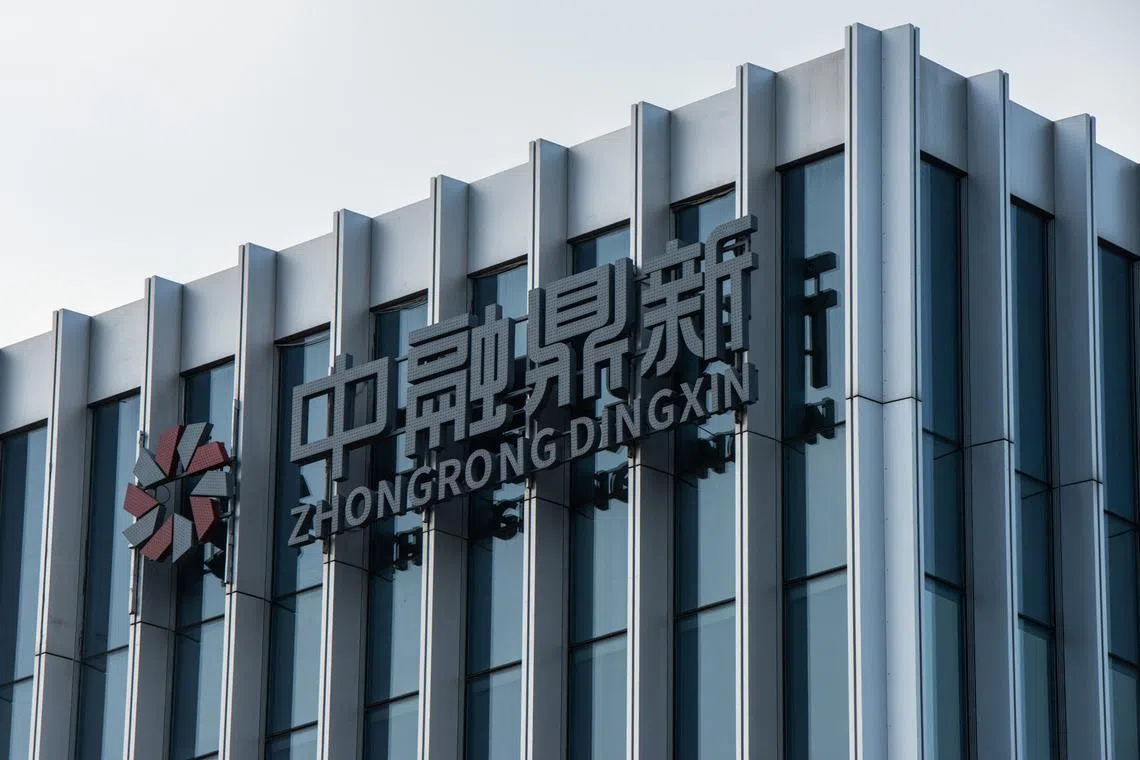China’s troubled shadow bank Zhongzhi warns of $41.5 billion debt hole
Sign up now: Get ST's newsletters delivered to your inbox

Zhongzhi Enterprise Group said liquidity has dried up and the recoverable amount from asset disposals is expected to be low.
PHOTO: BLOOMBERG
SHANGHAI – One of China’s largest shadow banks has warned that it is “severely insolvent”, with a debt pile more than twice its assets, according to a letter seen by Bloomberg News.
In a further sign of trouble for the nation’s US$3 trillion (S$4 trillion) trust sector, Zhongzhi Enterprise Group told investors on Nov 22 that it has debts of about 420 billion yuan to 460 billion yuan compared with assets of 200 billion yuan, leaving at least a 220 billion yuan (S$41.5 billion) hole.
Liquidity has dried up and the recoverable amount from asset disposals is expected to be low, the company said.
“Preliminary due diligence shows the group has endured a significant risk of sustainable business operation and the company doesn’t have sufficient assets to cover debt in the short term,” the firm said in the letter sent to investors.
Previous efforts at a “self-rescue” failed to live up to expectations, according to the letter.
Zhongzhi, one of the country’s largest private wealth managers, is the latest financial giant to run into trouble sluggish growth in the world’s second-largest economy.
The manager of more than one trillion yuan in assets was thrust into the spotlight in August after one of its trust company affiliates failed to make payments to customers on high-yield investment products.
The company did not respond to a request seeking comment.
The group has hired KPMG to conduct an audit of its balance sheet for potential debt restructuring, Bloomberg reported earlier. Meanwhile, its trust unit received help from two of the nation’s biggest financial firms to maintain business operations and management.
Shadow banks like Zhongzhi are loosely regulated firms that pool household savings to offer loans and invest in real estate, stocks, bonds and commodities.
In recent years, even as rival trusts pared risks, Zhongzhi and its affiliates, especially Zhongrong International Trust, extended financing to troubled developers and snapped up assets from companies including China Evergrande Group.
China is rolling out a series of measures to stabilise the property sector. Regulators are drafting a list of 50 developers eligible for a range of financing, Bloomberg reported earlier this week.
Previous policies included mortgage easing for home buyers, down payment reductions, income tax rebates and more affordable housing. The measures have so far failed to reverse the slump. BLOOMBERG


